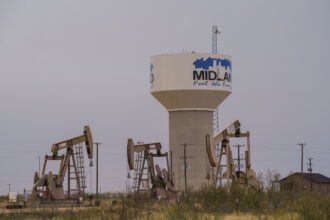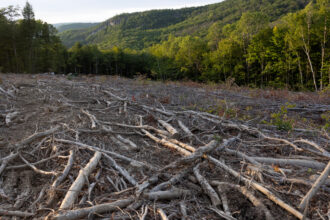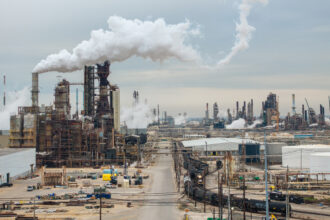This project is part of a joint investigation by InsideClimate News, The Weather Channel and The Investigative Fund.
U.S. regulators knew they had to act fast. A train hauling 2 million gallons of crude oil from North Dakota had exploded in the Canadian town of Lac-Megantic, killing 47 people. Now they had to assure Americans a similar disaster wouldn’t happen south of the border, where the U.S. oil boom is sending highly volatile crude oil every day over aging, often defective rails in vulnerable railcars.
On the surface, the response from Washington following the July, 6, 2013 explosion seemed promising. Over the next several months, the U.S. Department of Transportation, issued two emergency orders, two safety alerts and a safety advisory. It began drafting sweeping new oil train regulations to safeguard the sudden surge of oil being shipped on U.S. rails. The railroad industry heeded the call, too, agreeing to slow down trains, increase safety inspections and reroute oil trains away from populous areas.
But almost a year and a half later—and after three railcar explosions in the United States—those headline-grabbing measures have turned out to be less than they appeared. Idling oil trains are still left unattended in highly populated areas. The effort to draft new safety regulations has been bogged down in disputes between the railroads and the oil industry over who will bear the brunt of the costs. The oil industry is balking at some of the tanker upgrades, and the railroads are lobbying against further speed restrictions.
And rerouting trains away from big cities and small towns? That, too, has been of limited value, because refineries, ports and other offloading facilities tend to be in big cities.
InsideClimate News, The Weather Channel, and The Investigative Fund have monitored the regulatory response to oil train explosions this year, focusing on whether the agency that oversees the railroads—the Federal Railroad Administration (FRA)—is able to ensure that the nation’s aging railroad infrastructure can safely handle its latest task: serving as a massive, rickety network of pipelines on wheels.
This article is part of a project supported by the Alicia Patterson Foundation, the George Polk Award program at Long Island University, the Fund for Investigative Journalism and the Society of Environmental Journalists’ Fund for Environmental Journalism. It was reported in partnership with The Investigative Fund at The Nation Institute.
About This Story
Perhaps you noticed: This story, like all the news we publish, is free to read. That’s because Inside Climate News is a 501c3 nonprofit organization. We do not charge a subscription fee, lock our news behind a paywall, or clutter our website with ads. We make our news on climate and the environment freely available to you and anyone who wants it.
That’s not all. We also share our news for free with scores of other media organizations around the country. Many of them can’t afford to do environmental journalism of their own. We’ve built bureaus from coast to coast to report local stories, collaborate with local newsrooms and co-publish articles so that this vital work is shared as widely as possible.
Two of us launched ICN in 2007. Six years later we earned a Pulitzer Prize for National Reporting, and now we run the oldest and largest dedicated climate newsroom in the nation. We tell the story in all its complexity. We hold polluters accountable. We expose environmental injustice. We debunk misinformation. We scrutinize solutions and inspire action.
Donations from readers like you fund every aspect of what we do. If you don’t already, will you support our ongoing work, our reporting on the biggest crisis facing our planet, and help us reach even more readers in more places?
Please take a moment to make a tax-deductible donation. Every one of them makes a difference.
Thank you,









